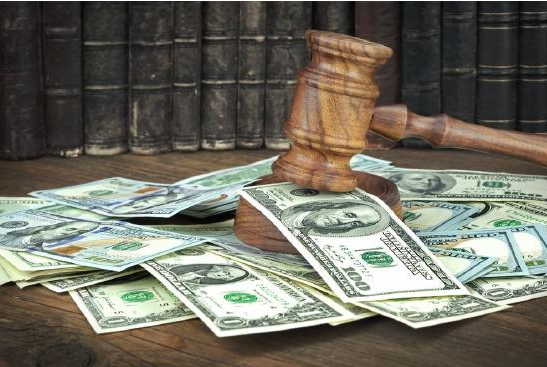Will The Tax Amnesty Program Affect The Average Harrisburg Resident?
Many states are finding themselves with dwindling resources to help pay for state programs. One of those states is Pennsylvania. Estimates show that if the residents within the state would pay their taxes according to what they owe, then the $3 billion deficit would be solved. The state Revenue Department is currently owed $3.5 billion in taxes by both individuals and businesses across all 67 counties.

Since collection would be a huge undertaking, instead of targeting the people who haven’t paid their taxes, — which a Harrisburg bankruptcy attorney, would consider to be a huge portion of Harrisburg and Pennsylvania residents — Governor Tom Wolf is offering a much kinder and less complex system. He is offering tax amnesty to businesses and residents alike.
In recent weeks the state’s revenue chief said that those who haven’t paid their taxes would have 60 days to pay any taxes they owe from 2015 or before. If they do, then the program will allow those who get themselves current to waive half the interest they owe on unpaid taxes, plus any penalties for any business that didn’t already participate in a similar forgiveness push that the state ran in 2010.
Most of the residents in Pennsylvania pay their taxes on time, but those who don’t are subject to fines and interest that can soon become overwhelming and make it nearly impossible to pay their taxes at all. So this is one opportunity for taxpayers who are in arrears to catch up.
The goal is to raise $100 million from the over 800,000 known individuals who have not paid their taxes. That number includes 18,000 businesses and individuals in Lehigh County and 16,000 in Northampton County, which are the targets of the prior investigation. Just to get information on that level, the state had to sign a contract with Pioneer Credit Recovery to the tune of almost $9 million.
The department is confident that it can reach the collection goal and also provide new research to identify other delinquent individuals and businesses. Act 84, which was passed by the state in 2016, estimated that they would be able to collect $900 million by June and that that number would grow to an additional $2 billion by the following year.
In addition to the amnesty program, Wolf has proposed a higher niche tax on businesses; the government is also considering loosening the stringent gambling and liquor laws to produce more revenue for the state. If the state legislature won’t raise taxes, then the Revenue Board will have to rely on gaining income from programs like the amnesty one to get people to pay what they owe. The director of the Pennsylvania Budget and Policy Center, which is a think tank located in Harrisburg, advocates for the protection of business taxes and unions to cover government expenses.
They believe that it is much more beneficial to use programs that target those who already aren’t paying, instead of putting an additional burden on businesses and unions. After all, it isn’t a good idea to penalize those who are following the rules and let others slide. The Pennsylvania Budget and Policy Center believes that it makes more sense to put money into trying to recover from those who are delinquent than to keep implementing more taxes.
Even though amnesty would give people who have evaded their taxes a pass on penalties and interest, the goal is to collect what the government is owed. If it is a reasonable amount, it is more realistic than piling more debt on those who are already having a hard time making the original payment. Assuming that residents and businesses are cheating isn’t helping anyone; it is just ensuring that the overwhelmed aren’t paying anything at all.
So, for Harrisburg residents: if you owe back taxes and aren’t a business who already took advantage in 2010, now is the time to pay what you owe and start with a clean slate. If you don’t pay, there is a good likelihood that the state will start to go after people who aren’t, which could mean a significant amount of penalties and interest that you don’t’ have to pay if you pay now. Since a tax spiral can land you in bankruptcy if not taken care of, it is a good idea to pay your taxes now.
